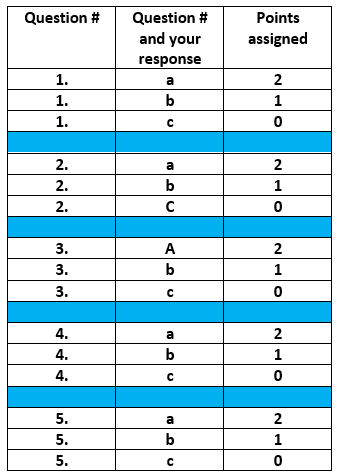 So far in this troubleshooting series, we’ve focused on assessing the contact center’s mission and value proposition, and the metrics we need to determine how well we are performing.
So far in this troubleshooting series, we’ve focused on assessing the contact center’s mission and value proposition, and the metrics we need to determine how well we are performing.
The contact center needs to develop a plan to achieve those objectives. Forecasting is the start of that planning process. Forecasts predict demand for the contact center. Demand drives staffing and scheduling. And both ultimately determine the cost required to execute the plan and deliver exceptional customer experiences.
Inadequate and/or inaccurate forecasts can lead to unnecessary costs due to over/under-staffing, as well as poor customer and agent experiences. In other words, having a solid process that produces accurate forecasts is essential to running an efficient and effective contact center.
Forecasting assessment: Below is a quick 5-question “quiz” designed to assist you in assessing your current forecasting process, and/or establishing one. While certainly not comprehensive, these 5 questions can help you understand where your forecasting processes are today and, hopefully, jumpstart a deeper dive. The goal is to ensure you are maximizing the value forecasts can have in making sound business decisions, and in minimizing the chaos that can happen in the contact center when forecasts are inaccurate.
Ask yourself the following about your current forecasting process(es):
1. Do you have a forecasting process in place?
a. Yes, we have a process to create budget forecasts, staffing forecasts, and operational forecasts.
b. Yes, we have a process to create forecasts, but typically only for short-term operational needs. (staffing and scheduling for the near future)
c. No, we do not currently have any formal forecasting processes in place.
2. Do you have a full-time dedicated group of individuals accountable for forecasting who regularly collaborates with important organizational business partners (i.e. Marketing, Sales etc.)?
a. Yes, we have a full-time dedicated group whose expertise is forecasting. They work closely with business partners to proactively identify events and/or initiatives that will impact the contact center.
b. Yes, we have a dedicated group whose expertise is forecasting, but we do not have a formal process to ensure initiatives across the organization are identified and proactively incorporated into the forecast.
c. No, we do not currently have a full-time dedicated group to do forecasting.
3. Does the forecast include all channels of communication handled by the contact center (e.g., phone, chat, mail, e-mail, social, etc.)?
a. Yes, we create forecasts for all channels the contact center supports.
b. No, we only create forecasts for some of the channels we handle.
c. No, we either do not create forecasts at all, or we only create them for the phone channel.
4. Do your forecasts have adequate and accurate historical data for the forecast?
a. Yes, the contact center team understands the importance of using the right phone states to ensure accurate input into the forecast. The forecasting team also “cleans the data” and annotates and neutralizes exceptions.
b. Yes, the contact center team understands the importance of using the right phone states to ensure accurate input into the forecast, but there is room for improvement. The forecasting team does make some adjustments for very large exceptions (i.e. major system outages).
c. No, we don’t have a process in place to ensure that agents use the right phone states, and we don’t always adjust the data for exceptions.
5. Do you measure the accuracy of your forecasts?
a. Yes, we measure forecast accuracy using different metrics depending on the type of forecast. We also have a process in place to do a post-analysis review to ensure continuous improvement.
b. Yes, we measure forecast accuracy using forecasts at either the daily, weekly, or monthly level. We don’t have a formal continuous improvement process in place.
c. No, we never measure forecast accuracy.
Scoring: Highest Score is 10

Score interpretation:
7 - 10: Focused Forecasting
You have a solid forecasting process. Your contact center understands the value of the forecasting process in driving business decisions, delivering exceptional customer experiences and budgets. Forecast accuracy is measured, and the role everyone inside and outside of the center plays in that accuracy is communicated and understood.
While there may be room for improvement in communication and/or forecast accuracy itself, the return on investment of a robust forecasting process is understood. Continuously looking for opportunities to finetune and improve forecasting is a part of the contact center’s culture.
4 to 6: Heading in the right direction
While there is an understanding of the role an accurate forecast plays in making business decisions, and the ability to deliver exceptional customer and employee experiences, there is room to increase the investment in the forecasting process to realize greater returns. Creating forecasts for all channels, and establishing forecasts for budget, staffing, and operational purposes should be made a priority. Measures of success are essential, and while forecast-to-actual is a great place to start, other metrics will ensure the center is able to communicate the value of the forecast and will allow continuous improvement opportunities to be identified.
0 to 3: In need of a course correction
There is a great opportunity for your organization and contact center to leverage the power of forecasting. Investing in a robust forecasting process will allow you and your team to make more sound business decisions, minimize excessive, unnecessary expenses, and create staffing plans that increase the center’s ability to deliver on customer and employee expectations. Involving individuals inside and outside the center and communicating the role they play in the forecast will strengthen relationships and help leverage the value the contact center contributes to the organization’s success. The bottom line is that having a solid process that produces accurate forecasts allows us to make good budget, staffing, and operational decisions is essential to running an efficient and effective contact center.
Bottom line: The bottom line is that every contact center needs a solid process that produces accurate forecasts, which in turn allows us to make good budget, staffing, and operational decisions to run an efficient and effective contact center.